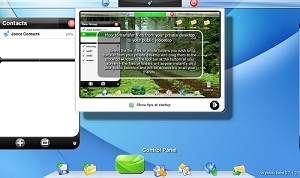Beginning in 2012, if you buy an HP computer, it’ll still have the de facto Windows operating system, but in case you’re curious, it will also be able to boot up with HP’s recently acquired webOS platform.
WebOS, which HP received when it bought all of the assets from the now-defunct Palm, hasn’t been in the news that much since the HP deal went through.

The company has a lot of work to do if it plans to even try to make webOS a viable competitor to Android, iOS, and Windows Phone 7. It has talked about bringing tablets and smartphones to the market with the largely unknown operating system but most of those plans have fallen through so far.
HP bought Palm for $1.2 billion and we’re still waiting to see what actually came from that deal. HP was one of the largest manufacturers of computers before the deal and continues to be today. The motivating factor behind Palm’s acquisition appeared to be a desire to get into the mobile sector.
But that has proven to be an extremely difficult task. How can HP compete in a market where super heavyweights like Research in Motion and Nokia are dying? Even Microsoft, which has invested significant resources into a brand new mobile initiative, has barely made a dent.
So it looks like HP is turning back to its bread and butter – computers – to make use of webOS. Beginning in 2012, it says, every one of its PCs will be able to dual boot between Windows and webOS.
Whether or not that will do anything for the mobile platform obviously remains to be seen, but most PC users would probably find little value in being able to run another operating system when they already have Windows.
In other words, HP is trying desperately to justify its purchase of Palm, and this is just the latest step in that mission.






